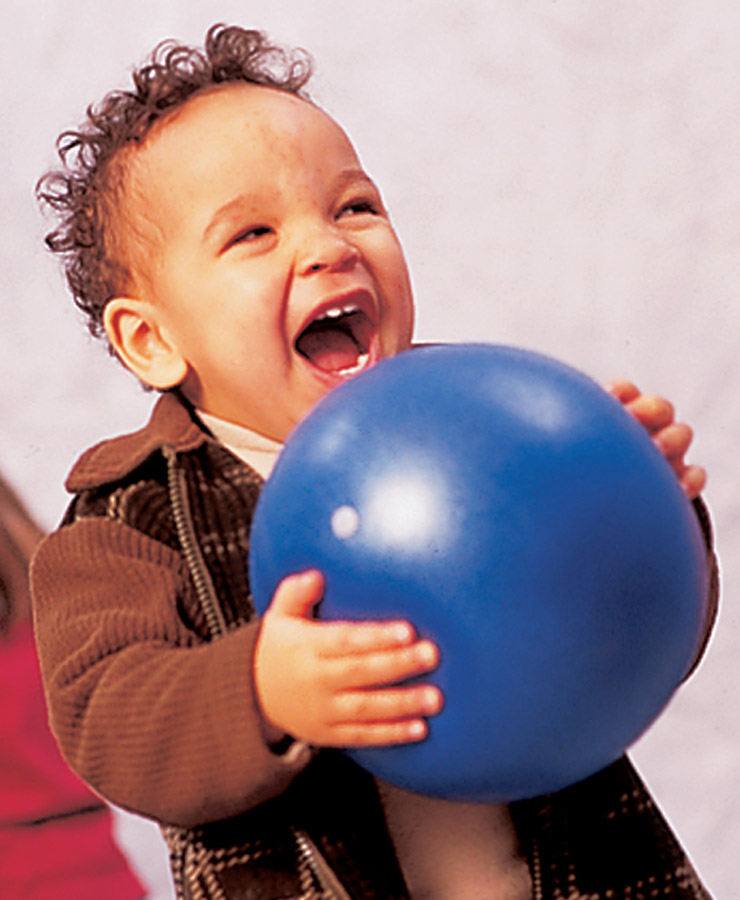 To a child with imagination and a parent who hasn’t forgotten the simple joys
To a child with imagination and a parent who hasn’t forgotten the simple joys
of childlike playfulness, every object has unlimited possibilities. Ball play enables children to investigate rolling, bouncing, passing, and tossing, exercising their imaginations as well as their gross-motor skills.
Tips for parents: You can enjoy ball play indoors or out with a Gertie® ball. Gerties are squishy, catchable balls perfect for the child just learning ball skills. Add a little fun ball play music – it’s easy to put together a favorite playlist from play.kindermusik.com just by searching on the word “ball.”
Contributed by Theresa Case, whose Greenville, SC program, Kindermusik at Piano Central Studios, is proudly among the top 1% of Kindermusik programs worldwide.





